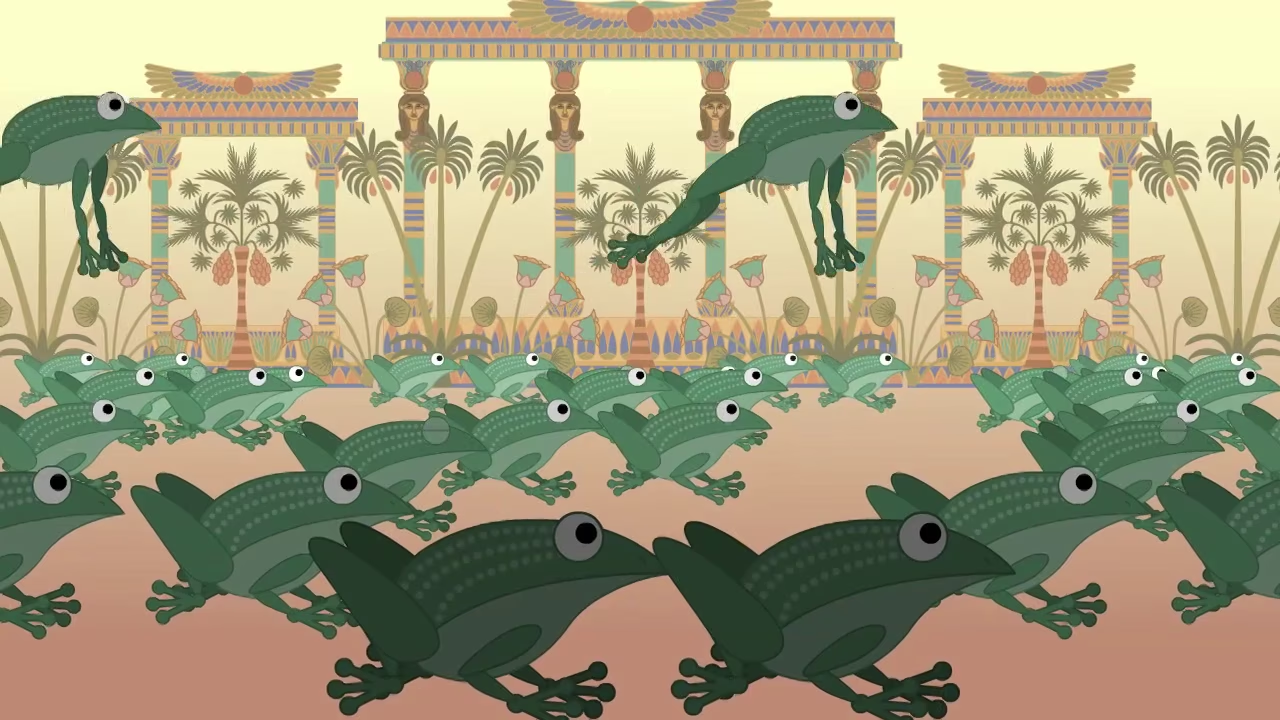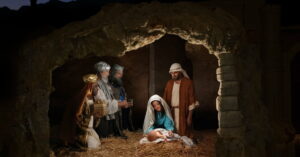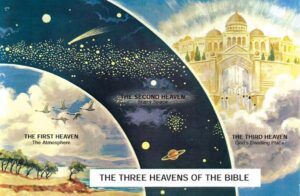Introduction
The Ten Plagues of Egypt are some of the most dramatic and memorable events recorded in the Bible. The second plague, where frogs overran Egypt, stands out for its vivid imagery and profound impact. This blog post delves into the biblical account, the significance of the plague, and the lessons it offers.

Biblical Account and Significance
Frogs Overrun Egypt
In Exodus 8:1-15, God commands Moses to tell Pharaoh to let the Israelites go. When Pharaoh refuses, God brings a plague of frogs upon the land. Frogs come up from the Nile and spread everywhere—in homes, in beds, and even in ovens and kneading troughs. This widespread invasion causes chaos and discomfort throughout Egypt.
Symbolic Meaning
This plague was a direct affront to the Egyptian goddess Heqet, who was depicted as a frog and associated with fertility and childbirth. By causing an overabundance of frogs, God demonstrated the futility of worshipping Egyptian deities and showed His power over creation.
Pharaoh’s Response
Initially, Pharaoh’s magicians replicate the miracle by producing more frogs, but they cannot remove them. Desperate, Pharaoh asks Moses to pray to God to take the frogs away, promising to let the Israelites go. However, once the frogs die and are gathered into heaps, causing the land to stink, Pharaoh hardens his heart and refuses to keep his promise.

Modern Interpretations and Lessons
Environmental Insights
Some modern interpretations suggest natural explanations, such as changes in the Nile’s ecosystem causing a frog population explosion. While these theories offer interesting perspectives, they do not diminish the biblical account’s theological significance. The miraculous nature of the event underscores God’s direct intervention in human history.
Spiritual Lessons
The plague of frogs teaches several spiritual lessons. It reminds believers of God’s power and authority over all creation. It also serves as a warning against the hardness of heart and the consequences of breaking promises made to God. Lastly, it highlights the futility of idolatry and the importance of recognizing and worshipping the true God.
Conclusion
The plague of frogs, as recorded in Exodus, is a powerful demonstration of God’s supremacy over the Egyptian gods and a pivotal event in the story of Israel’s liberation from slavery. It serves as a reminder of God’s power, the importance of keeping promises, and the consequences of idolatry. As we reflect on this biblical account, we are encouraged to recognize God’s hand in our lives and remain faithful to His commands.








